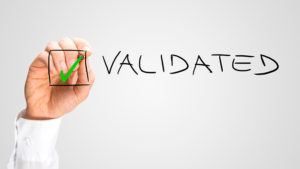Leaders of organizations, corporations, and governments should abide by a set of ethical standards when performing their duties. This also applies to volunteer leaders of homeowners associations. Here is your guide to HOA board member ethics.
The Importance of HOA Board Member Ethics
A homeowners association is led by a group of board members known as the HOA board. These members volunteer to run for positions on the board. Once elected, they must fulfill the duties of HOA board members. These duties range from common area maintenance and violations enforcement to accounting and dues collection. Basically, board members are in charge of everything necessary to keep the community running.
As with any leadership role, though, there are some gray areas and opportunities for exploitation. This is where the HOA board members code of ethics comes in. A code of ethics is essentially a standard by which board members must carry out their responsibilities. Board members must adhere to this code, which all boils down to putting the community’s best interests first.
When ethical dilemmas arise, leaders must refer to their HOA board member ethics code to know how to proceed. Breaching the code of ethics does not innately bear consequences, though individual HOAs can set their own penalties for violation. For instance, an association may revise its bylaws to allow the removal of a board member who breaches the code.
Community Association Board Members Ethics
A code of ethics is a set of standards that board members must follow when performing their duties. There is no universal code that applies to all associations; rather, each association will have its own code. If you do not have a code of ethics for HOA board members yet, below is a framework that you can use as a guide.
1. Board Members Should Serve the Best Interests of the Community
Board members have a duty to serve the association. As such, they should always prioritize the best interests of the HOA and never put their personal interests first. Board members should make decisions that are for the best of the community even if it means they will personally suffer consequences.
2. Board Members Should Make Decisions Using Sound Judgment
Board members should always use sound judgment when deciding on matters of the association. They should consider all the available information, resources, and circumstances before making a business decision.
3. Board Members Should Act Within the Scope of Their Authority
 There are two things that give board members their authority: the law and the HOA’s governing documents. If neither the law nor the governing documents permit the board to do something, then the board has no power to do it.
There are two things that give board members their authority: the law and the HOA’s governing documents. If neither the law nor the governing documents permit the board to do something, then the board has no power to do it.
Keep in mind that the law will always take precedence over the CC&Rs and bylaws. As such, if a federal or state law conflicts with an HOA rule, the law controls. For instance, an HOA may not enact or enforce a rule that completely prohibits satellite dishes as it is in direct conflict with the federal OTARD Rule.
4. Board Members Should Give Residents a Chance to Provide Input
Residents have a right to speak their concerns and comments. But, they have no way of doing this if the board does not give them the opportunity. Thus, board members must give residents a chance to give their feedback on issues facing the association. In some states, it is even required that HOAs hold an open forum during a board meeting. A good example is California’s Open Meeting Act.
5. Board Members Should Never Act on Bias
Board members must always carry out their responsibilities without bias or discrimination. They should never act on bias against a single person or group of persons. They should also enforce the rules consistently and fairly, without personal judgment or favor.
6. Board Members Should Avoid Conflicts of Interest
When there is a conflict of interest, board members must disclose it and then recuse themselves from the vote involving the conflict. A conflict of interest arises when a decision personally affects or benefits a board member. For instance, the board might conduct a vote on which contractor to choose, and one of the potential contractors is a relative of a board member. Another example is when the board is deciding on enforcement actions against a fellow board member.
7. Board Members Should Conduct Fair Elections
Elections must always take place openly and fairly. The HOA board must also publicize the elections well so that all homeowners are aware.
8. Board Members Should Present a Unified Front
It is not uncommon for an HOA board to have differing opinions on an issue. But, it is important to always speak with one voice. Thus, even if they do not agree with the unanimous decision, board members must support the final decision and never challenge the board publicly. A divided board will only make homeowners feel uneasy.
9. Board Members Should Practice Confidentiality
Board members should never disclose any private, sensitive, or confidential information to any homeowner, resident, or third party. Unless otherwise authorized by the board, any discussions involving such information should take place behind closed doors (i.e. during the executive session).
10. Board Members Should Not Make Unauthorized Promises to Third Parties
Board members should never make unsanctioned promises to vendors, contractors, or bidders. Making a promise, such as promising to hire a certain contractor or promising a certain fee, will only put the association in jeopardy.
11. Board Members Should Not Accept Gifts
Board members are volunteers, which means they receive no compensation for performing their duties. This includes any gifts from homeowners, residents, or third parties. Even with the best of intentions, accepting a gift from a supplier or resident does not look good for the board as there are certain implications involved.
12. Board Members Should Always Operate on Facts
When conducting association business, board members should always represent known facts. There are far too many unknowns, and making assumptions can only lead to complications for the board.
13. Board Members Should Not Harass, Threaten, or Attack Others
There is absolutely no room on the board for someone who behaves inappropriately. Board members must never attack, threaten, or harass anyone, including employees and fellow board members. Using aggressive behavior not only makes residents feel uncomfortable but can also open the association to lawsuits.
An Ethical Board Is a Good Board
Having an HOA board member ethics code is imperative because it provides a standard by which board members should act. This greatly reduces confusion and uncertainty, leading to a more harmonious board and community.
If your board needs help crafting your code of ethics, an HOA management company can help. Elite Management Services provides excellent management solutions to homeowners associations and condominiums. Call us today at (855) 238-8488 or contact us online to learn more!
RELATED ARTICLES:
- HOA Voting: A Guide For Board Members And Homeowners
- Interim HOA Board: Should Vacant Positions Be Filled Immediately?
- HOA Accounting Standards The Board Must Set Up










